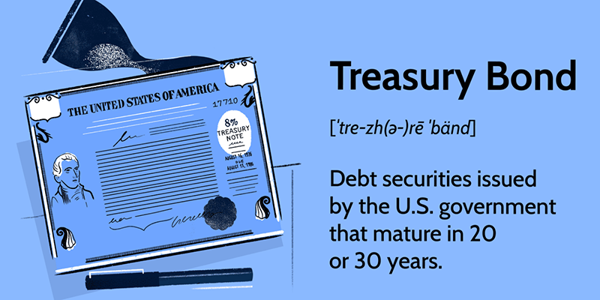Are you considering your retirement savings but feeling overwhelmed by all the options? You're not alone!
Planning for retirement can feel like a maze—stocks, bonds, real estate, 401(k)s, IRAs—where do you start? The good news is that you don't have to be a financial expert to build a strong retirement portfolio. The key is understanding your options and choosing what fits your financial goals and risk tolerance.

In this guide, we'll break down the best investment options for retirement savings. Let's explore how to grow your nest egg for a financially secure future. Taking small steps today can lead to big rewards regardless of your starting point.
401(k) Plans – The Workplace Powerhouse
Consider yourself lucky if your employer offers a 401(k) plan! This is one of the best retirement savings tools available.
Why Choose a 401(k)?
Tax Advantages
Contributions are made pre-tax, lowering your taxable income. Some employers also offer Roth 401(k) plans, where your retirement withdrawals are tax-free.
Employer Match
Many companies match your contributions up to a certain percentage. It's free money for your retirement!
High Contribution Limits
In 2024, you can contribute up to $23,000 if you're under 50 and $30,500 if you're 50 or older.
Pro Tip
Contribute enough to get the full employer match—it’s one of the easiest ways to boost your savings without extra effort.
Individual Retirement Accounts (IRAs) – Traditional Vs. Roth
Not everyone can access a 401(k), but an IRA is an excellent alternative. There are two main types:
Traditional IRA – Pay Taxes Later
• Contributions may be tax-deductible (depending on income limits).
• Your money grows tax-deferred until you withdraw in retirement.
• Withdrawals in retirement are taxed as ordinary income.
Roth IRA – Pay Taxes Now, Enjoy Tax-Free Growth
• Contributions are made with after-tax money.
• Your money grows tax-free, and qualified withdrawals are also tax-free.
• No minimum distributions (RMDs) are required during your lifetime.
Pro Tip
A Roth IRA might be the better option if you expect to be in a higher tax bracket in retirement.
Stocks – The Growth Engine
Stocks are one of the most powerful ways to grow wealth over time. While they come with higher risks, they also offer higher potential returns.
How to Invest in Stocks for Retirement?
Individual Stocks
If you enjoy research, you can invest in individual companies.
Index Funds & ETFs
These funds track the market and offer diversification with lower fees.
Dividend Stocks
Companies that pay dividends provide a steady stream of income in retirement.
Pro Tip
If you're new to investing, consider index funds like the S&P 500 ETF, which offers broad market exposure with minimal effort.
Bonds – The Stability Factor
Bonds are a great way to add stability to your retirement portfolio. They don't offer high returns on stocks, but they provide predictable income and lower risk.
Types of Bonds Worth Considering
Treasury Bonds (T-Bonds)
Issued by the U.S. government, they are among the safest investments.

Municipal Bonds (Munis)
Issued by states or local governments, they offer tax-free interest income.
Corporate Bonds
Issued by companies, they pay higher interest but carry slightly more risk.
Pro Tip
A good retirement portfolio often includes a mix of stocks and bonds. The closer you get to retirement, the higher your bond allocation should be.
Real Estate – A Tangible Asset With Passive Income
Investing in real estate can be a great way to generate rental income and long-term wealth.
Ways to Invest in Real Estate for Retirement
Rental Properties
Buy homes or apartments and rent them out for a steady income.
Real Estate Investment Trusts (REITs)
These are companies that own income-generating real estate. Investing in REITs lets you benefit from real estate without the hassle of being a landlord.
Vacation Rentals
Platforms like Airbnb can turn a second home into a profitable investment.
Pro Tip
REITs offer exposure without property management headaches if you don't want to deal with tenants.
Annuities – Guaranteed Lifetime Income
Annuities are insurance products that provide a steady income stream in retirement. They are best for people who want predictable income and less market risk.
Types of Annuities
Fixed Annuities
Pay a guaranteed amount of money over time.
Variable Annuities
Payments fluctuate based on market performance.
Immediate Annuities
Start paying out right after you invest.
Deferred Annuities
Start payments later, allowing your money to grow.
Pro Tip
Annuities can have high fees, so compare options before committing.
High-Yield Savings Accounts & CDs – Safe But Limited Growth
If you want a completely risk-free option, a high-yield savings account or certificate of deposit (CD) can be a good choice. These won’t grow as much as stocks or real estate, but they provide security and liquidity.
High-Yield Savings Accounts
Earn higher interest than traditional savings.
CDs
Lock in your money for a set period with a fixed interest rate.
Pro Tip
Use these for your emergency fund or short-term retirement savings needs.
The Best Strategy? Diversification!
There is no single best investment for retirement—a combination of different options works best. A diversified portfolio can help you balance growth, income, and security.
How to Build a Balanced Portfolio?
In Your 20s & 30s
Focus more on stocks for growth.
In Your 40s & 50s
Start adding bonds and real estate for stability.
In Your 60s & Beyond
Shift to more conservative investments like bonds, annuities, and high-yield savings.
Final Thoughts: Start Now, Adjust Later
The sooner you start saving for retirement, the more time your money has to grow. Whether you prefer stocks, real estate, annuities, or a mix of everything, the key is to take action today.
No matter where you are in your financial journey, there's an investment option that fits your goals. Explore your choices, stay informed, and make your future retirement years financially stress-free! Consistency and adaptability are crucial as market conditions and personal circumstances change. The most important step is getting started—your future self will thank you! Small, steady contributions can lead to significant long-term rewards, so don't wait to secure your financial future.





